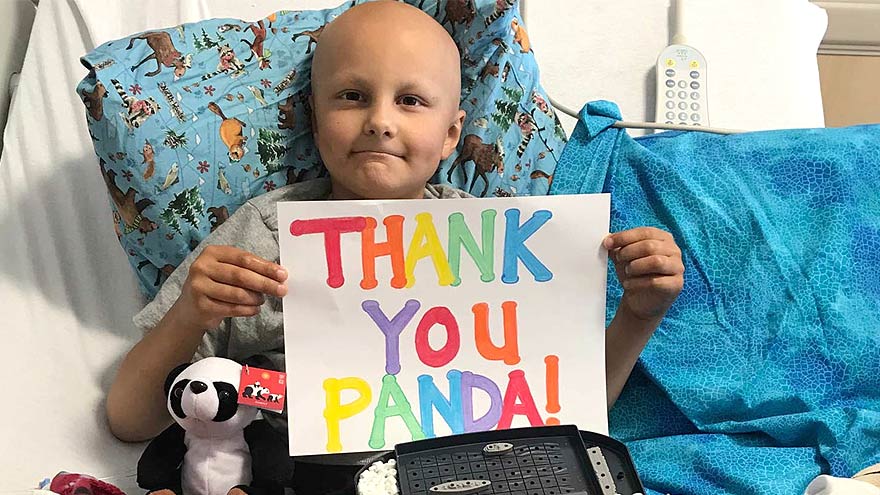Buscar
-
When Should You Consider Hospice? 5 Important Signs
Deciding on hospice care for a loved one is a deeply personal and challenging decision, balancing their wishes and medical realities. Rebecca Edwards, DNP, from Renown Hospice Care, explains the signs indicating when it might be time for hospice and offers guidance on navigating this decision with compassion and clarity. Understanding Hospice Care Before exploring the decision-making process, it’s crucial to have a clear understanding of what hospice means. Hospice care represents a shift in how we approach living with a terminal condition, emphasizing comfort, dignity, and quality of life above all else. When there is no longer a pathway to a cure, side effects of treatment outweigh the benefits, or someone is simply tired of frequent hospital visits, then it may be time for hospice. Hospice care is mainly done in the home, where most people wish to be. It's a compassionate, team approach to care that focuses on meeting the physical, emotional, and spiritual needs, supporting their families, and honoring individual preferences. 5 Critical Signs to Be Aware Of Decline in Overall Health: When a loved one's health continues to decline despite ongoing medical interventions, this may be a sign that these treatments are no longer effective. Increasing Pain and Symptoms: When managing symptoms such as pain, nausea, fatigue or shortness of breath becomes increasingly challenging, hospice can offer specialized support and expertise in symptom management. Frequent Hospitalizations: Repeated hospitalizations or emergency room visits can signify that the disease has progressed to a point where managing symptoms and providing comfort at home or in a hospice setting is a more appropriate approach. Difficulty with Daily Activities: If your loved one is experiencing difficult with activity of daily living such as dressing, bathing, or mobility, it may be a sign that they require additional support and assistance. Prognosis of Six to 12 Months: Hospice Care is typically recommended for patients with a prognosis of about one year or less if the disease follows its normal course. However, it’s important to remember that every individual is unique and prognosis can vary.
Read More About When Should You Consider Hospice? 5 Important Signs
-
How to Treat a Sprain or Strain
Injuries happen to everyone. They are caused by participating in sports, recreational activities like hiking, and even by accidentally stepping off a curb wrong. If you experience a sprain or strain, the first few days are often the most painful. Renown Sports Medicine physicians Luis Palacio, MD and Brandon Hockenberry, MD walked us through what to do after an injury. Listen to Your Body See a medical professional right away if: You know or suspect that a bone is broken You are having difficulties putting full weight on a joint of the leg Pain or swelling is severe There is a sign of an infection, such as redness and warmth in the joint The First 24-72 Hours Joint sprains tend to swell more than muscle strains. You can use ice as needed for comfort and to relieve any pain, but do not use ice for more than 15-20 minutes at a time. Ice and NSAIDs (such as ibuprofen) can help prevent excessive swelling and mask the pain, but they do not speed recovery. Some research shows that overuse of ice actually delays recovery. During the first 24-72 hours, your injury will go through an inflammation phase. Inflammation is your body’s natural way to dispose of dead tissue cells, build new healthy structures, and hopefully heal even stronger than before.
-
Alzheimer's Safety Tips for Caregivers to Know
November is National Alzheimer’s Disease Awareness Month. At Renown Health, we know that Alzheimer's safety for your loved one is a priority, as the symptoms can sometimes lead to unsafe situations. We asked Dr. Jonathan Artz – a neurology physician with Renown Health and an assistant professor of clinical neurology at the University of Nevada, Reno School of Medicine – for tips on keeping loved ones safe and secure. According to the Alzheimer’s Association, Alzheimer’s disease affects safety in various ways, specifically due to body and brain adjustments. These changes can include: Judgment, including forgetfulness Sense of place – getting lost on the way home Behavior – being suspicious or fearful Body difficulty – losing balance Sensing ability – noticeable sensitivity in hearing, seeing or temperature Dr. Artz gives us four major tips to ensure your loved one’s safety as you both navigate this disease together. Watch for Wandering Those experiencing Alzheimer’s disease tend to wander and get lost. Try the following tips to reduce the risk of wandering: Get your loved one an ID bracelet and have them wear it at all times. You can also enroll your loved one in “Wandering Support.” Install door chimes so you know when exterior doors are open. Ask neighbors to call you if they see your loved one out alone. Go with your loved one when they insist on leaving the house. Don’t argue or yell. Instead, use distraction or gentle hints to get them to return home. Discourage Driving Driving can be unsafe for someone with this disease. With this in mind, ask a doctor whether it’s safe for your loved one to drive. For example, on a case-by-case basis, there are certain situations where doctors are required to report individuals with particular cognitive impairments, wherein a form of a driving assessment will be recommended. Limit access to the car. Keep the keys with you or lock them away. Ask an authority figure, such as an insurance agent or a doctor, to tell them not to drive. Adult-Proof Your Abode A simple living space is a safe living space. This means reducing clutter and removing any issues that may pose a safety concern. You may also want to get advice from an occupational therapist (home safety expert). Keep in mind that some changes may not be needed right away. Focus on major safety concerns first. Try the following tips: Add lighting (or glow-in-the-dark tape) to brighten dark areas, including stairways and halls. Use color contrast or texture indicators for dials, knobs and appliance controls. Remind your loved one not to carry items while walking to avoid a fall. Remove sharp objects from drawers and countertops. Avoid using small throw rugs or doormats, as they are easy to trip on. Move frequently used items so that they are easy to reach. Lock away alcohol and tobacco products, as they are not recommended for dementia patients. Install handrails in the shower, tub and near the toilet. Bathroom falls are especially common. Adjust the setting on your hot water heater so water does not scald. Those with Alzheimer’s can lose their sensitivity to temperature. Move and lock up hazardous chemicals and cleaning supplies, such as bleach and insecticides. Disable and remove guns or any weapons. Supervise any medication taken by your loved one. Promote a Positive & Healthy Lifestyle Continually emphasize the strengths of your loved one by promoting participation in meaningful activities, wellness visits and healthy habits to help them improve their well-being. Here are some ways to keep them physically and mentally active: Maintain regular vision and hearing screenings and make necessary adaptations. Establish a routine for daily activities. Encourage participation in self-care and leisure activities. Work with your loved one’s doctor to establish a healthy diet. Ensure proper hydration. It may help to set reminders for your loved one to drink fluids. Encourage regular exercise. Exercise delivers oxygen to the brain, improving brain health. Promote good sleep habits. Good quality sleep can increase overall brain health and has been associated with improving memory, attention and concentration. Resources and support are available with the Renown Memory Disorders Program. Providers within this program are specifically dedicated to treating several different memory-related disorders. Memory Disorders Resources & Support.
Read More About Alzheimer's Safety Tips for Caregivers to Know
-
Human Trafficking Happens in Nevada
Each month an average of 5,016 individuals are sold for sex in Nevada. Frequently the victims of human trafficking are women and children. That’s why Renown, along with other community groups, is leading efforts to help victims. Specifically identifying them and connecting them to the support services they need. The purpose is to restore their mental and physical health give them hope for a better life. Supporting Our Community Our goal is to identify victims, providing compassionate care for the complex needs of this vulnerable population. By building partnerships with key agencies and advocates in the community and creating policies around human trafficking, we also aim to transition victims safely to community-based services. Along with training, Renown healthcare workers are armed with pocket guides reminding them how to support human trafficking victims. To provide awareness about this crisis, Renown has implemented four key initiatives: Educate health care providers Execute policies and procedures to identify victims Build partnerships with local law enforcement, emergency services and local advocates Connect victims to crucial community resources Human Trafficking: How You Can Help Awaken acts to transform our community with the ultimate goal of ending commercial sexual exploitation. In 2020, Awaken worked with 173 women and children. Awaken’s programs include a drop-in center, an 18 to 24 month transitional housing program, an educational center for trafficked youth, rental assistance, recovery groups, therapy, tutoring, case management, mentorship, safety, and community. National Human Trafficking Hotline: 1-888-373-7888 Local Emergency: 911 Did You Know?
-
Panda Cares Center of Hope at Renown Children's Hospital
When you have an ill child in the hospital, it is a stressful event. And Panda Express is helping local families support children who need special care. Their generous donation provides much-needed equipment, programs, and resources via the new Panda Cares Center of Hope, Renown Children’s Specialty Center. Their partnership directly benefits patients and their families! The ‘Panda Cares Center of Hope, Renown’s Children’s Specialty Center’ In fact, this new center provides care to not only children, but also comprehensive support to the entire family. Similarly, it creates an environment that reduces stress, promotes healing, and provides a superior patient and family experience. This facility upholds Panda Express’ mission, vision, and values and its four pillars: to directly help fund the emotional, mental, physical, and spiritual needs of children. This center, the first-ever in northern Nevada, will provide care for children who have chronic conditions. In particular, it offers ongoing treatment, health management, and specialty medical services, including: Nephrology Endocrinology Neurology Pulmonary Infectious Diseases Medical Genetics Adolescent Medicine How You Can Help! When you order from Panda Express, you can opt to round up your change, which will help support programs and services, such as the Center of Hope for Renown Children’s Hospital. Order Online A Partnership for Health & Education of Underserved Youth This partnership allows Renown Children’s Hospital to continue to strengthen regional services and increase Panda’s visibility within our growing community. Last year, 21,930 sick children received care from Renown Children’s Hospital. To date, Panda Express has raised $449,200 in financial support to assist us in providing health and education to every child, regardless of illness, injury, insurance, or ability to pay. Panda Express funds have already supported: Giraffe omni beds for the NICU Ultrasound machine for the Children’s ER Panda warmers and a hand held Accuvein machine Child Life Program to support sick patients and families Meeting room in the Children’s Specialty Center In kind donations, volunteer time and support of local events such as the University of Nevada Reno, Wolf Pack Dance Marathon
Read More About Panda Cares Center of Hope at Renown Children's Hospital




